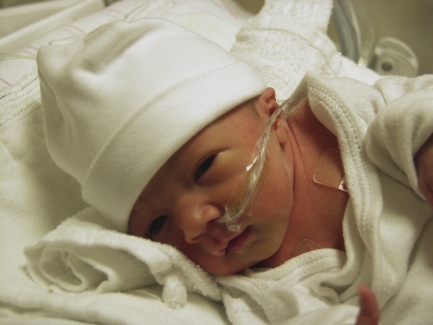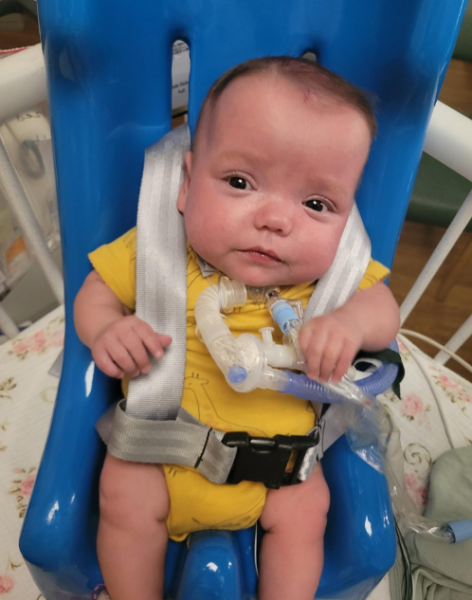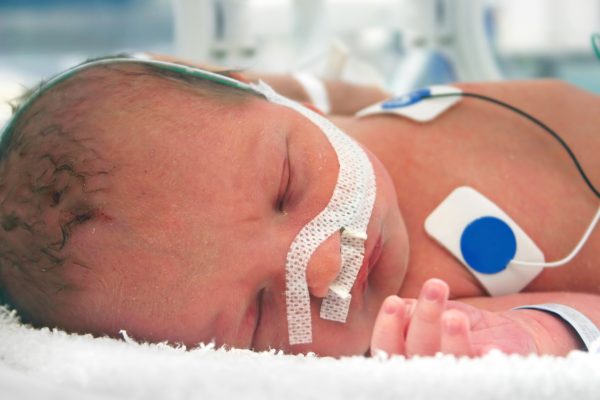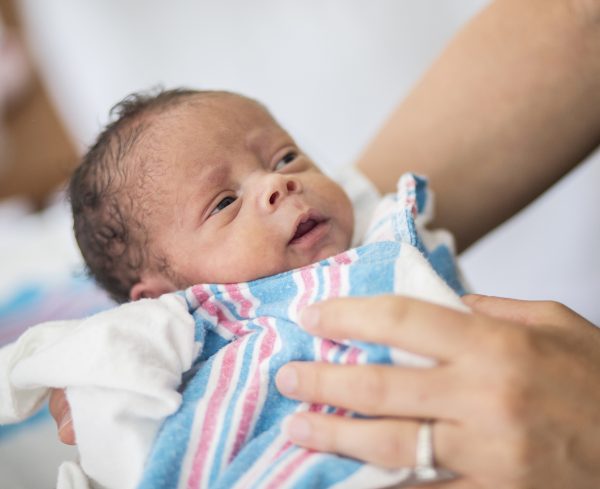Click here to download the brochure with complete course details:
COURSE DESCRIPTION:
This intermediate-advanced on-demand course will focus on the cardiopulmonary implications for the premature or medically-complex infant as related to physiological stability, evolving motor control, sensory stability, and transition to oral motor skills that support feeding. It will focus on advancing the critical reasoning skills of the neonatal therapist to support the infant’s ability to obtain foundational motor and sensory skills. These skills include the ability of the infant to cough, produce audible phonation, oral motor skills, swallow skills, trunk facilitation, gestational age appropriate positioning/handling to support the emergence of gross motor skills for postural stability. You will learn movement analysis skills (via lab time and video presentations) to assess breathing patterns, facilitation techniques to support trunk development, positioning strategies to support chest wall development, and feeding techniques to maximize postural control. We will discuss current literature as relevant to this topic and apply a systems theory approach for case study treatment planning.
LEARNING OBJECTIVES:
- Integrate chest wall movement assessment and treatment strategies to maximize infant outcomes
- Utilize developmental positioning and handling interventions to reduce chest wall deformities
- Assess the effects of invasive and non-invasive pulmonary support to the facial and oral structures as related to non-nutritive sucking and oral feeding progression
- Incorporate postural support with positioning and handling of infants for improved chest wall mobility during oral feeding
- Choose an appropriate individualized care plan for an infant with compromised cardiopulmonary systems, using a systems approach.
AUDIENCE:
This course is recommended for intermediate to advanced neonatal therapists, PTs, PTAs, OTs, OTAs, and SLPs working with infants in the Neonatal Intensive Care Unit.
PARTICIPANT REQUIREMENT:
In order to maximize the learning experience during lab time, each participant needs to bring a soft body doll. The ideal size would be 10-15”, but any soft body doll will work.
__________________________________________________________________________________
SCHEDULE:
3 hours 47 mins: Updates on Evidence: Research to Support Material Presented on Day 1:
- Literature to advance neonatal therapy practice for positioning, handling, cardiopulmonary medical interventions
- Discussion of resources available to further participant learning
– Typical Development of the Infant Chest Wall:
- Anatomy and kinesiology of the chest wall, ribcage, and spine
- Developmental changes to the anatomical shape and function of these structures as related to gross motor development, postural control, feeding, and maturation
– Cardiopulmonary System of the Premature or Critically-ill Term Infant: Anatomical Differences, Congenital Heart Defects, and Vascularization. A therapist’s guide for critical reasoning:
3 hours 50 mins: Assessment of Breathing with Movement Analysis:
- Components of adaptive and maladaptive breathing patterns
- Use of video presentation to analyze and assess breathing patterns for infants in the NICU
– Positioning and Handling of the 22-32 Week Premature Infant with Focus on Chest Wall Development:
- Rationale for positioning strategies to support trunk development
- LAB and lecture time for positioning and handling
- Case Study: Positioning Strategies
4 hours 4 mins: Updates on Evidence: Research to Support Material Presented on Day 2:
- Literature to advance neonatal therapy practice for postural control facilitation, development of musculoskeletal system as it supports cardiopulmonary function, feeding strategies for infants post cardiac repair, developmental feeding strategies for premature infants with cardiopulmonary compromise
- Discussion of resources available to further participant learning
– Lecture and LAB: Musculoskeletal positioning/handling for the 32-week infant and older
- Facilitated pelvic tuck
- Abdominal activation
- Transition away from developmental positioning devices and back to sleep
– Lecture and LAB: Musculoskeletal assessment and facilitation for infants 32 weeks and older
- Spinal assessment for maladaptive breathing
- Scapular and pelvic assessment and movement facilitation
Holly Schifsky, OTR/L, CNT, NTMTC, CBIS, has worked in pediatrics for the past 28 years with the past 17 years in a level IV NICU. She is a Certified Neonatal Therapist, Certified Neonatal Touch and Massage Therapist, Certified Brain Injury therapist, a member of National Association of Neonatal Therapists, and has completed 6-month mentorship in infant/child NDT.
She has worked within the NICU and NICU follow-up clinic to maximize patient and family outcomes for the most complex premature and medically-fragile term infants. Holly received her BS in OT from the University of North Dakota. She is a faculty member for the Neonatal Touch and Massage certification; and Manuel Edema Mobilization training. She is the recipient of the National Association of Neonatal Therapists Clinical Excellence award in 2018, due to her clinical expertise and dedication to advancing the therapeutic interventions for NICU infants with cardiopulmonary conditions.
Financial Disclosures: Holly Schifsky receives a speaking fee when she teaches for ERI.
Non-Financial Disclosures: Holly Schifsky has no relevant nonfinancial relationships to disclose.
Once you purchase an online course you will have access to the course materials. If you have purchased this course, please ensure you have logged in to your account in order to take the exam.
Once you purchase an online course, you will have the opportunity to take an exam to test your retention of the material. If you have purchased this course, please ensure you have logged in to your account in order to take the exam. The exam must be completed with a pass rate of 80% or more in order to receive your certificate of attendance.
Continuing Education Hours for disciplines not listed below: 15.5 contact hours (1.55 CEUs). Intermediate level. License #______________.
Education Resources Inc. is an AOTA Approved Provider of professional development. Course approval ID#087030. This Distance Learning-Independent Course is offered at 15.5 contact hours 1.55 CEUs, Intermediate level, OT Service Delivery. AOTA does not endorse specific course content, products or clinical procedures. This course can be used toward your NBCOT renewal requirements for 15.5 units. Provider for the FL Occupational Therapy Association CE Broker for 18.5 CE Hours - approval #20-911404. ASHA CEUs are awarded by the ASHA CE Registry upon receipt of the CEU Participant Form from the ASHA. Approved CE Provider for up to 1.55 CEU’s. ASHA CE Provider approval and use of the Brand Block does not imply endorsement of course content, specific products or clinical procedures. Course meets the basic criteria of the MD Board of Physical Therapy Examiners for 1.55 CEU's, 15.5 contact hours. Approval #2205-03 by the NJ State Board of Physical Therapy Examiners for 15.5 CEC's. Approved sponsor by the State of IL Department of Financial and Professional Regulation for Physical Therapy for 18.5 contact hours. The Illinois Early Intervention Training Program has approved this event for 15.5 hours of EI credential credit in the area of Intervention. Approved provider by the NY State Board of Physical Therapy for 18.5 contact hours (1.85 CEUs). Education Resources is an approved agency by the PT Board of CA for 15.5 contact hours. Approved by the APTA Kentucky, A Chapter of the American Physical Therapy Association, for 15.5 Category 1 contact hour(s). Expiration Date: 3/6/25, approval #CS61-2023-APTAKY. This activity is provided by the TX Board of PT Examiners accredited provider #2210017TX for 15.5 CCUs and meets continuing competence requirements for PTs and PTAs licensure renewal in TX. Approved provider #BAP202310003 by the OK Board of Medical Licensure and Supervision for Physical Therapy for 15.5 Contact Hours (1.5 CEUs). The following state boards of physical therapy accept other states’ approval: AK, AR, AZ, DC, DE, GA, HI, ID, IN, KS, MA, MI, MO, MS, NC, OR, PA, RI, SC, UT, VA, VT, WI, WY. The following state boards of physical therapy either do not require course pre-approval or do not require CEUs for re-licensure: AL, CO, CT, IA, ME, MT, NE, ND, NH, SD, WA. This course meets the criteria for 15.5 hours that can be applied toward the Neonatal Therapy National Certification. 12 hours of this course qualify towards the discipline-specific hours for the 20-hour requirement for NDTA re-certification. They do NOT qualify towards the 8-hour NDTA Instructor requirement for re-certification.
Education Resources Inc., 266 Main Street, Suite 12, Medfield, MA 02052 508-359-6533






